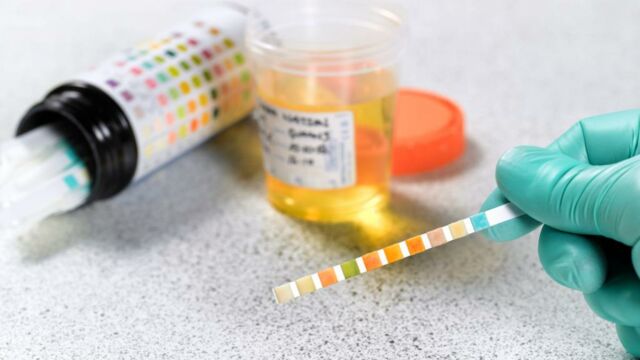This is what the colour of your urine reveals about your health

This is not exactly a dinner conversation, but your urine is one of the most efficient ways to keep track of your overall health.
The colour, smell, and amount all tell you a lot about what's going on inside your body. Where there's a smell, there's a symptom. Your daily pee contains a lot of information about what's going on inside your body, so it's worth paying attention to the colour and smell before you flush all the data away. Normal urine is yellow to light orange in colour with a slightly sweet smell. If it's darker than this or has a strong odour it could be an indication that something's wrong.
Discover our latest podcast
Bright yellow or orange
There are many reasons why your urine might be bright yellow or orange. The most common cause is a kidney disease, bacterial infections, high blood pressure, diabetes, or liver disease.
More under this adMore under this adPink or reddish
A pink or reddish tint to your urine could be a sign that you're experiencing a urinary tract infection (UTI). If you notice this change in colour, it's best to see your doctor right away.
According to Mayo Clinic, if there’s blood in your urine, it may look pink or red as well—but only for a few seconds before turning dark again. This could signal something serious going on with one of the organs that removes waste from the blood.
More under this adMore under this ad
Dark yellow
Dark yellow urine can mean a number of things, but it is most often caused by dehydration. It's more common in hot and dry weather, as well as during exercise or any other activity that causes sweating. When you're dehydrated, your urine will appear darker yellow than normal because of an increased concentration of waste products like urea.
More under this adMore under this adBrownish
When your urine is brownish, it could mean something serious. According to Cleveland Clinic, it might be a sign of dehydration or liver disease. If you're dehydrated, drink more water. If you have liver disease, see a doctor right away.
Disclaimer: The contents of this article: text, graphics, images, and other materials contained, are strictly for informational purposes only. The content is not intended to be used as a substitute for professional medical diagnosis, advice, or treatment. Please always seek the advice of a qualified health provider with all the questions that you have related to, or about, a medical condition.
More under this adMore under this adSources used:
Mayo Clinic: Urine color
Cleveland Clinic: What the color of your pee says about you